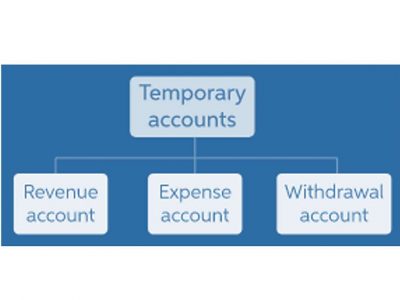
Both the American Institute of Professional Bookkeepers (AIPB) and the National Association of Certified Public Bookkeepers (NACPB) offer accreditation and licensing to bookkeepers. There are no formal educational requirements to become a bookkeeper, but they must be knowledgeable about financial topics and accounting terms https://www.bookstime.com/ and strive for accuracy. A bookkeeper is not an accountant, nor should they be considered an accountant. And from our personal experience, most small business owners understand their expenses. Regardless of what happens to that 20 dollars next, these transactions have started bookkeeping and accounting processes.

Our Team Will Connect You With a Vetted, Trusted Professional

Because of these factors, advancing your bookkeeping career to a role in accounting can be advantageous. For instance, the job outlook for accountants and auditors has a 6 percent growth rate from 2021 to 2031. The median salary for these roles is also higher than for bookkeepers at $77,250 per year [4].

Enroll in an undergraduate degree program.
Keeping up with the records in your small business might be a task you are willing and able to tackle yourself. The system you choose to use doesn’t need to be complicated and the ledgers should be straightforward, especially if you have just a few or no employees. The most important parts of doing your own bookkeeping are staying organized and keeping track of the details.
- A bookkeeper used to prepare accounts for an accountant to run the reports, provide the analysis, and do the taxes.
- Technically, the definition of bookkeeping is the activity or occupation of keeping records for the financial affairs of a business.
- The expected job decline is primarily due to cloud computing and other software innovations automating bookkeeping tasks that a person would normally do.
- There are various career paths for accountants (and some for bookkeepers), from working as a forensic accountant to becoming a financial auditor or an enrolled agent.
- AIPB certification requires bookkeepers to have at least two years of full-time work experience and pass a national exam.
- Bookkeepers don’t need a special certification, but a good bookkeeper is important for an accountant to have accurate financial records.
Meet Top Certified Financial Advisors Near You
- However, significant differences exist, like work conducted in each career and needed to be successful.
- If you enjoy organization and numbers and have experience with bookkeeping, starting your own business offering this service might be a smart career choice.
- They may also pursue certifications to demonstrate they have the expertise required to serve their clients.
- Accounting and bookkeeping roles can seem similar because both work with financial data, require knowledge of accounting concepts and have a common goal of improving a business’s financial situation.
- Most small businesses can get by in the early stages using a bookkeeper, and that may be sufficient for managing day-to-day activity.
- While they mainly record financial transactions, bookkeepers are responsible for a variety of duties, which are important for maintaining a successful business.
- Tasks, such as establishing a budget, planning for the next fiscal year and preparing for tax time, are easier when financial records are accurate.
But in the finance industry, they have distinct functions and implications for running your business. Cassie is a deputy editor collaborating with teams around the world while living in the beautiful hills of Kentucky. Prior to joining the team at Forbes Advisor, Cassie was a content operations manager and copywriting manager.
Key Takeaways
However, you might hire a CIA if you want a more specialized focus on financial risk assessment and security monitoring processes. Accountants’ qualifications depend on their experience, licenses and certifications. To become an accountant, they accounting vs bookkeeping must earn a bachelor’s degree from an accredited college or university. We collaborate with business-to-business vendors, connecting them with potential buyers. In some cases, we earn commissions when sales are made through our referrals.
Best Online Bookkeeping Services
While a bookkeeper can help with the precise details of the business, an accountant is better suited to do bigger-picture analysis and strategic planning. It’s helpful to understand the different roles of a bookkeeper and an accountant so you can utilize them appropriately as your business grows. Although they both have a hand in your company’s finances, their skill sets and purposes vary. In this article, you will learn the differences between bookkeeping and accounting, as well as instances in which each member of your financial team is necessary.
- There is also ample opportunity for on-the-job training, apprenticeships, and post-secondary coursework that can help someone become a skilled bookkeeper.
- The basic difference between the two lies in the tasks involved and the objective of performing the two activities.
- However, larger businesses with more complex transactions, or businesses planning for growth, will likely need the skill set of an accountant.
- An employer may request that you have a secondary school diploma to work in bookkeeping, but beyond that, requirements will vary.
- As your business grows, it’s important to invest in professionals who can keep your accounting system on track, free up your time, and help you make better decisions for your business.
- You might also be watching your company’s list of expenses and wondering where to reduce spending.